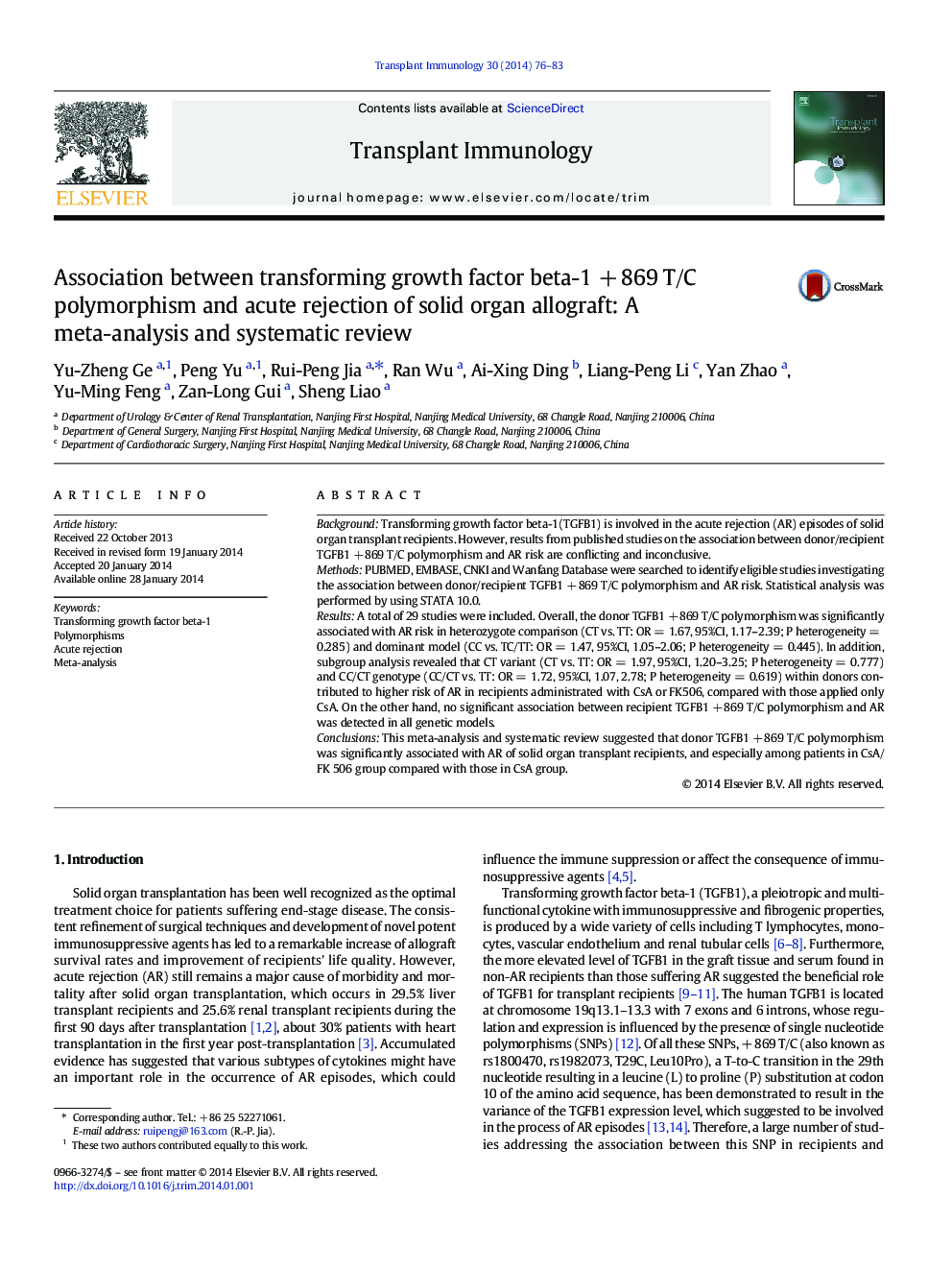| Article ID | Journal | Published Year | Pages | File Type |
|---|---|---|---|---|
| 3392119 | Transplant Immunology | 2014 | 8 Pages |
•TGFB1 is involved in acute rejection of solid organ transplant recipients.•Association between TGFB1 + 869 T/C polymorphism and AR risk is inconclusive.•The meta-analysis suggested the association of donor + 869 T/C SNP with AR.
BackgroundTransforming growth factor beta-1(TGFB1) is involved in the acute rejection (AR) episodes of solid organ transplant recipients. However, results from published studies on the association between donor/recipient TGFB1 + 869 T/C polymorphism and AR risk are conflicting and inconclusive.MethodsPUBMED, EMBASE, CNKI and Wanfang Database were searched to identify eligible studies investigating the association between donor/recipient TGFB1 + 869 T/C polymorphism and AR risk. Statistical analysis was performed by using STATA 10.0.ResultsA total of 29 studies were included. Overall, the donor TGFB1 + 869 T/C polymorphism was significantly associated with AR risk in heterozygote comparison (CT vs. TT: OR = 1.67, 95%CI, 1.17–2.39; P heterogeneity = 0.285) and dominant model (CC vs. TC/TT: OR = 1.47, 95%CI, 1.05–2.06; P heterogeneity = 0.445). In addition, subgroup analysis revealed that CT variant (CT vs. TT: OR = 1.97, 95%CI, 1.20–3.25; P heterogeneity = 0.777) and CC/CT genotype (CC/CT vs. TT: OR = 1.72, 95%CI, 1.07, 2.78; P heterogeneity = 0.619) within donors contributed to higher risk of AR in recipients administrated with CsA or FK506, compared with those applied only CsA. On the other hand, no significant association between recipient TGFB1 + 869 T/C polymorphism and AR was detected in all genetic models.ConclusionsThis meta-analysis and systematic review suggested that donor TGFB1 + 869 T/C polymorphism was significantly associated with AR of solid organ transplant recipients, and especially among patients in CsA/FK 506 group compared with those in CsA group.
